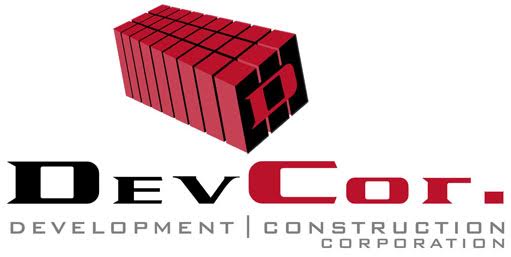Rocket Men
From projects as diverse as fire stations, schools and rocket/testing facilities, Devcor are property developers and builders with a difference: TABJ delves into their portfolio
Johann Lübbe, managing director of Devco Property Development Corporation (Pty) Ltd (commonly known as ‘Devcor’), is talking about one of their projects and it is fantastic enough to widen anyone’s eyes: “We built a concrete tunnel lined with 12mm steel plates linked to a control room at the back. Laxan, which is tempered Perspex panels, were fitted in the control room so that operators could visually control the weapons and see the 40mm grenades explode 50 or 100 metres away at, what they call, the ‘bullet-catcher’, i.e. where the grenade hits a target and explodes.” Not the description of your average residential build, Lübbe is describing the build that his company, in a joint venture with Khapukha Buiding and Civils, did for Rheinmetal Denel Munition, a grenade testing facility that is jointly owned by Rheinmetall Waffe Munition and Denel.
This build was so successful, despite being on a very tight schedule, that the German owned company is holding it up as an example of world class test facility construction. A further tender to modify more than 30 buildings for pyrotechnical operations on the compound was subsequently also awarded to the Joint Venture but Devcor are no strangers to undertaking challenging builds.
Residential to municipal
The company started life in 1999 as Cape Devco Building (Pty) Ltd with an emphasis on residential builds. Up to three years ago they were undertaking projects to build around 2000 apartments but when the global economy went to pot, they diversified into more municipal projects as well. Johann and Averal Fortuin began a company called Khapukha Building & Civils, in which several of their employees have shares, to tender jointly with Devcor for government and municipal projects.
Among the ones they landed was Cloetesville primary school, a construction project worth 23 million rand and the new Melkbosstrand fire station, at a value of around eight million rand. The school is almost finished now and the fire station is on target to finish in September or October of this year. Such contracts are likely to represent a bulk of work for them in the coming years, given the South African government’s commitment to building infrastructure through budget allocation for schools, hospitals and roads etc.
Devcor does still have its own residential projects as well as work they do for other developers. There is likely to be an upturn in demand for residential builds in the next couple of years as well, Lübbe says. “If you had asked me a year ago, I’d have been very pessimistic but things are definitely picking up. The banks are not as strict on lending criteria as they were. That was one of the biggest problems after the world economic collapse and recessions. Those created certain perceptions for the man on the street and everyone was too scared to get into further debt. They would rather rent than become home owners and the banks didn’t make it much easier.
“The banks are much more lenient when it comes to issuing bonds to end users now. There was a time that, on selected applications, they would give 80% bonds and the owners would have to come up with 20% themselves and it wasn’t possible in the private sector to get a residential development off the ground.
As it stands now, we’re really positive. It’s not going to be fast but perceptions are definitely changing. In 2013 and 2014, it will pick up hopefully and we’ll be back where we were five or six years ago.” At that time the company enjoyed a turnover approximately 300% higher than what it is currently but Lübbe is confident that this will return to a more normal, higher figure next year.
Reputation building
Lübbe says that the housing market in the R350-R700,000 range is still “lively” but that R1.5 million and above has pretty much stagnated for now. People who may have previously bought houses at this level now prefer to rent rather than get themselves into large amounts of debt.
Those who are buying homes are now much more energy and cost conscious. “They are more and more looking into proper insulation to keep heat in and cold out. They are exploring solar energy and are even looking at reusing water so that they can use bath water and washing water, with light treatment, for use in gardens. This aspect of the market will never be like it was before, that’s changed for life, and people are looking at conserving energy much more.”
Devcor, apart from responding to the changing needs of end users, are keen to maintain their reputation for integrity, honesty and good workmanship.
“After-sales service is extremely important to us,” says Lübbe, “if a complaint is made after a build, in the vast majority of cases, we would rather go fix it than say it is a maintenance problem. The construction industry in the Cape Town region is very small, everyone knows everyone else. Lots of fly-by-nights came into this business and then quickly disappeared because of bad workmanship and bad after-sales service.”
While their business has thus far focused primarily on the Western Cape, they are definitely interested in projects further afield when looking at their long term strategy. While a rocket testing facility may be an unusual build, this is one company with plenty of ammunition for successful residential and municipal builds.
Original Post http://www.tabj.co.za/construction/devcor_are_property_developers_and_builders_with_a_difference.html
